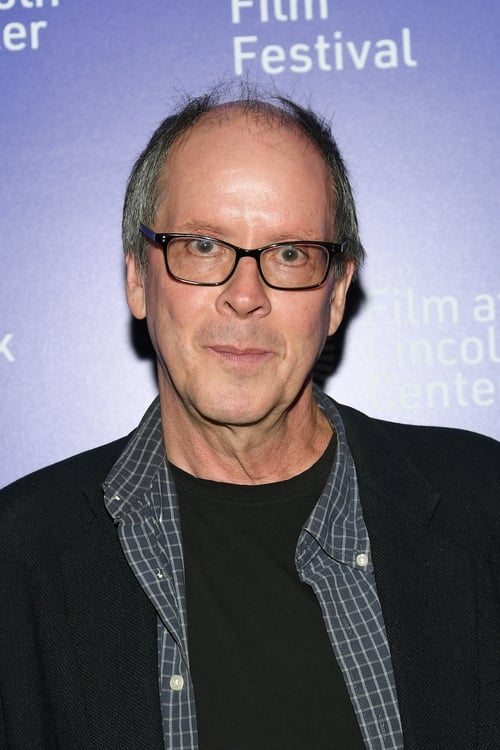Ric Burns
History
Ric Burns is an American documentary filmmaker and writer. He has written, directed and produced historical documentaries since the 1990s, beginning with his collaboration on the celebrated PBS series The Civil War, which he produced with his older brother Ken Burns and wrote with Geoffrey Ward.
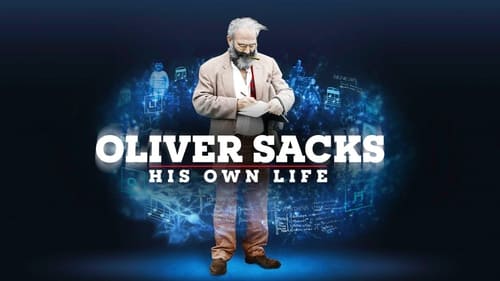
Director
An exploration of the life and work of the legendary neurologist and storyteller, as he shares intimate details of his battles with drug addiction, homophobia, and a medical establishment that accepted his work only decades after the fact. Sacks was a fearless explorer of unknown mental worlds who helped redefine our understanding of the brain and mind, the diversity of human experience, and our shared humanity.
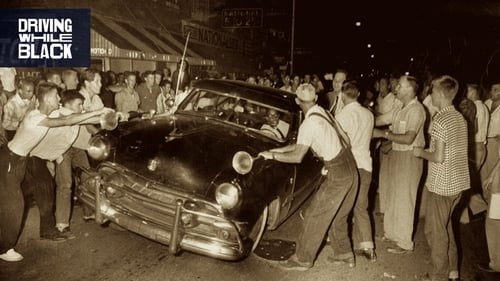
Director
Discover how the advent of the automobile brought new mobility and freedom for African Americans but also exposed them to discrimination and deadly violence, and how that history resonates today.
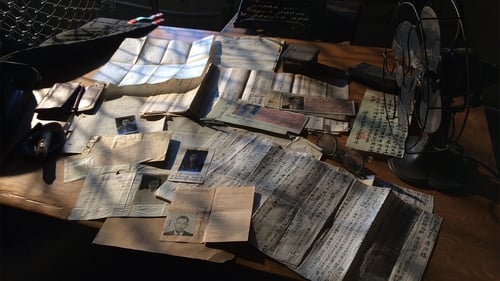
Writer
A sweeping chronicle of the entire exclusion era - the latter part of the 1800s, when anti-Chinese agitation led to federal laws targeting Chinese abroad and those already in the country. Go far beyond the legislation with the survival and growth of Chinese American communities in the face of prejudice and outright violence, the “paper” sons and daughters who emigrated despite the seemingly impassable barriers, and the legal challenges that produced some of the most momentous decisions in Supreme Court history.

Director
A sweeping chronicle of the entire exclusion era - the latter part of the 1800s, when anti-Chinese agitation led to federal laws targeting Chinese abroad and those already in the country. Go far beyond the legislation with the survival and growth of Chinese American communities in the face of prejudice and outright violence, the “paper” sons and daughters who emigrated despite the seemingly impassable barriers, and the legal challenges that produced some of the most momentous decisions in Supreme Court history.

Director
The voyage of the Mayflower in 1620 has come to define the founding moment of America, celebrated each year at Thanksgiving. A lavish new drama documentary by Ric Burns, based on governor William Bradford's extraordinary eye-witness account, the Mayflower Pilgrims reveals the grim truth behind their voyage across the Atlantic. The Pilgrims story has come to define the founding moment of America and all it stands for. Celebrated each year at Thanksgiving, it is remembered as a pious crusade aimed at founding a Puritan paradise. However their journey from a harsh, often violent part of England to a colony assured of survival less than ten years later is also one of wealth, cruelty, and entrepreneurial genius.

Writer
The voyage of the Mayflower in 1620 has come to define the founding moment of America, celebrated each year at Thanksgiving. A lavish new drama documentary by Ric Burns, based on governor William Bradford's extraordinary eye-witness account, the Mayflower Pilgrims reveals the grim truth behind their voyage across the Atlantic. The Pilgrims story has come to define the founding moment of America and all it stands for. Celebrated each year at Thanksgiving, it is remembered as a pious crusade aimed at founding a Puritan paradise. However their journey from a harsh, often violent part of England to a colony assured of survival less than ten years later is also one of wealth, cruelty, and entrepreneurial genius.

Director

Director
Arguably one of the most fateful and resonant events of the last half millennium, the Pilgrims journey west across the Atlantic in the early 17th century is a seminal, if often misunderstood episode of American and world history. The Pilgrims explores the forces, circumstances, personalities and events that converged to exile the English group in Holland and eventually propel their crossing to the New World; a story universally familiar in broad outline, but almost entirely unfamiliar to a general audience in its rich and compelling historical actuality. Includes the real history of the "first thanksgiving".

Director
Delve into the rich, 75-year history of one of the world's preeminent ballet companies. Ric Burns' documentary combines intimate rehearsal footage, virtuoso performances and interviews with American Ballet Theatre's key figures. Combined with hundreds of carefully curated stills and rare footage of ballet icons Alonso, Jerome Robbins, Agnes de Mille, Antony Tudor, Nora Kaye and Mikhail Baryshnikov, the film provides a comprehensive inside look at American Ballet Theatre and the world of professional ballet for both seasoned aficionados and those who never have seen a ballet.

Writer
Chronicle of publisher Gene Pope Jr.'s celebrity gossip and scandal fused vision, which became The National Enquirer, America's most notorious tabloid.

Director
Chronicle of publisher Gene Pope Jr.'s celebrity gossip and scandal fused vision, which became The National Enquirer, America's most notorious tabloid.

Himself
This remarkable new documentary explores the story behind one of the most iconic images of the twentieth century: the 1932 photograph of workmen taking their lunch while perched on a girder high above New York City.
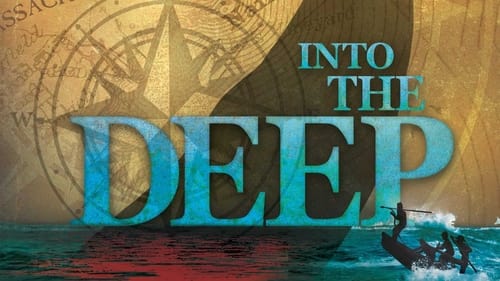
Writer
Examine the American whaling industry from its 17th-century origins in drift and shore whaling off the coast of New England and Cape Cod, through the golden age of deep ocean whaling, the tragedy of the Essex, and the career of Moby Dick's Herman Melville, and on to its demise in the decades following the American Civil War.

Director
Examine the American whaling industry from its 17th-century origins in drift and shore whaling off the coast of New England and Cape Cod, through the golden age of deep ocean whaling, the tragedy of the Essex, and the career of Moby Dick's Herman Melville, and on to its demise in the decades following the American Civil War.

Writer
Ric Burns unearths rarely seen footage and offers keen observations on the life and artistic influence of Andy Warhol. [Made for and aired on PBS's American Masters series.]

Director
Ric Burns unearths rarely seen footage and offers keen observations on the life and artistic influence of Andy Warhol. [Made for and aired on PBS's American Masters series.]

Executive Producer
Eugene O'Neill tells the haunting story of the life and work of America's greatest and only Nobel Prize-winning playwright -- set within the context of the harrowing family dramas and personal upheavals that shaped him, and that he in turn struggled all his life to give form to in his art.

Writer
Eugene O'Neill tells the haunting story of the life and work of America's greatest and only Nobel Prize-winning playwright -- set within the context of the harrowing family dramas and personal upheavals that shaped him, and that he in turn struggled all his life to give form to in his art.

Director
Eugene O'Neill tells the haunting story of the life and work of America's greatest and only Nobel Prize-winning playwright -- set within the context of the harrowing family dramas and personal upheavals that shaped him, and that he in turn struggled all his life to give form to in his art.

Director
The timeless photographs of Ansel Adams have made him one of the most recognized and admired names in art. This intimate look at the man and his work details his position as a staunch environmentalist and how his art reflected his strong worldview. David Ogden Stiers narrates this profile produced for the PBS series "American Experience," which was directed by Emmy-winning documentarian Ric Burns.

Director
The Concert for New York City took place on October 20, 2001 at Madison Square Garden. It was a celebration of the strength of New York and a thank-you to the heroic firefighters, police officers and rescue workers who saved tens of thousands of lives on September 11th. More than 6000 firefighters, police officers and rescue workers attended as guests.

Writer
Episode Seven of the New York: A Documentary. In the aftermath of World War II, southern African-Americans moved north and Puerto Rican immigrants poured into the city, a trend which would continue for the next thirty years. Robert Moses waged a campaign of urban renewal, including adding highways to the city, hastening white flight to the suburbs. The destruction of the old Penn Station in 1963 and the protests against Moses's plans for the Lower Manhattan Expressway led to the creation of the New York City Landmarks Preservation Commission, ensuring the survival of New York's most architecturally important buildings and neighborhoods. Social and financial crises in the 1960s and 1970s took a toll on the city, but New York's revival since the 1970s has been enduring.

Director
Episode Seven of the New York: A Documentary. In the aftermath of World War II, southern African-Americans moved north and Puerto Rican immigrants poured into the city, a trend which would continue for the next thirty years. Robert Moses waged a campaign of urban renewal, including adding highways to the city, hastening white flight to the suburbs. The destruction of the old Penn Station in 1963 and the protests against Moses's plans for the Lower Manhattan Expressway led to the creation of the New York City Landmarks Preservation Commission, ensuring the survival of New York's most architecturally important buildings and neighborhoods. Social and financial crises in the 1960s and 1970s took a toll on the city, but New York's revival since the 1970s has been enduring.

Director
Reveals the immense new forces that were unleashed in New York.

Director
Ric Burns (brother of the famed documentarian Ken Burns) presents an exhaustive history of New York City from the settling of the area by the Dutch to the attack by terrorists nearly 400 years later. Told in a sentimental tone, Burns weaves a lyrical tale of the great metropolis that encompasses not only the city's streets, but also that of the history of America. Though around fourteen hours in length, this epic documentary presents a thoughtful, entertaining look at our relatively young country. This installment covers The Gilded Age following the Civil War which saw the rise of the robber barons and the schism between wealth and poverty widen dramatically. The political life of the city, exemplified by William M. Tweed and Tammany Hall descended into total corruption. As the turn of the century dawned, New York City annexes Brooklyn, Queens and Staten Island.

Director
Ric Burns (brother of the famed documentarian Ken Burns) presents an exhaustive history of New York City from the settling of the area by the Dutch to the attack by terrorists nearly 400 years later. Told in a sentimental tone, Burns weaves a lyrical tale of the great metropolis that encompasses not only the city's streets, but also that of the history of America. Though around fourteen hours in length, this epic documentary presents a thoughtful, entertaining look at our relatively young country. This second installment finds the city as the largest port in the country. Waves of Irish and German immigrants flood into the city between 1825 and 1865 only to find that New York is not so welcoming to immigrants. Frederick Law Olmsted and Calvert Vaux shape the city with their design for Central Park but social unrest still ran high for the working classes, coming to a climax with the draft riots of 1863.

Director
Ric Burns (brother of the famed documentarian Ken Burns) presents an exhaustive history of New York City from the settling of the area by the Dutch to the attack by terrorists nearly 400 years later. Told in a sentimental tone, Burns weaves a lyrical tale of the great metropolis that encompasses not only the city's streets, but also that of the history of America. Though around fourteen hours in length, this epic documentary presents a thoughtful, entertaining look at our relatively young country. The first installment of the series begins with the founding of New Amsterdam, a Dutch trading post. The city starts to take shape as New Amsterdam becomes British New York. By the Revolutionary War, the city becomes the site for several key battles.

Producer
A six-hour documentary series chronicling the way the West was lost and won between 1845 and 1893, broadcast nationally on PBS in May 1995 as part of WGBH’s American Experience. The film looks at the final decades of the American frontier from the time of the Gold Rush until after the last gasp of the Indian wars at Wounded Knee.

Writer
A six-hour documentary series chronicling the way the West was lost and won between 1845 and 1893, broadcast nationally on PBS in May 1995 as part of WGBH’s American Experience. The film looks at the final decades of the American frontier from the time of the Gold Rush until after the last gasp of the Indian wars at Wounded Knee.

Director
A six-hour documentary series chronicling the way the West was lost and won between 1845 and 1893, broadcast nationally on PBS in May 1995 as part of WGBH’s American Experience. The film looks at the final decades of the American frontier from the time of the Gold Rush until after the last gasp of the Indian wars at Wounded Knee.

Director
Doomed attempt to get to California in 1846. More than just a riveting tale of death, endurance and survival. The Donner Party's nightmarish journey penetrated to the very heart of the American Dream at a crucial phase of the nation's "manifest destiny. Touching some of the most powerful social, economic and political currents of the time, this extraordinary narrative remains one of the most compelling and enduring episodes to come out of the West.

Producer
Before there was Disneyland, there was Coney Island. By the turn of the century, this tiny piece of New York real estate was internationally famous. On summer Sundays, three great pleasure domes--Steeplechase, Luna Park and Dreamland--competed for the patronage of a half-million people. By day it was the world's most amazing amusement park, by night, an electric "Eden".

Director
Before there was Disneyland, there was Coney Island. By the turn of the century, this tiny piece of New York real estate was internationally famous. On summer Sundays, three great pleasure domes--Steeplechase, Luna Park and Dreamland--competed for the patronage of a half-million people. By day it was the world's most amazing amusement park, by night, an electric "Eden".

Director
The incredible story of the island of Nantucket, from its Native American origins as a Wampanoag outpost, through the English settlement and early Quaker culture, to its international significance as the whaling capital of the world, and eventual transformation to summer resort and art colony.
